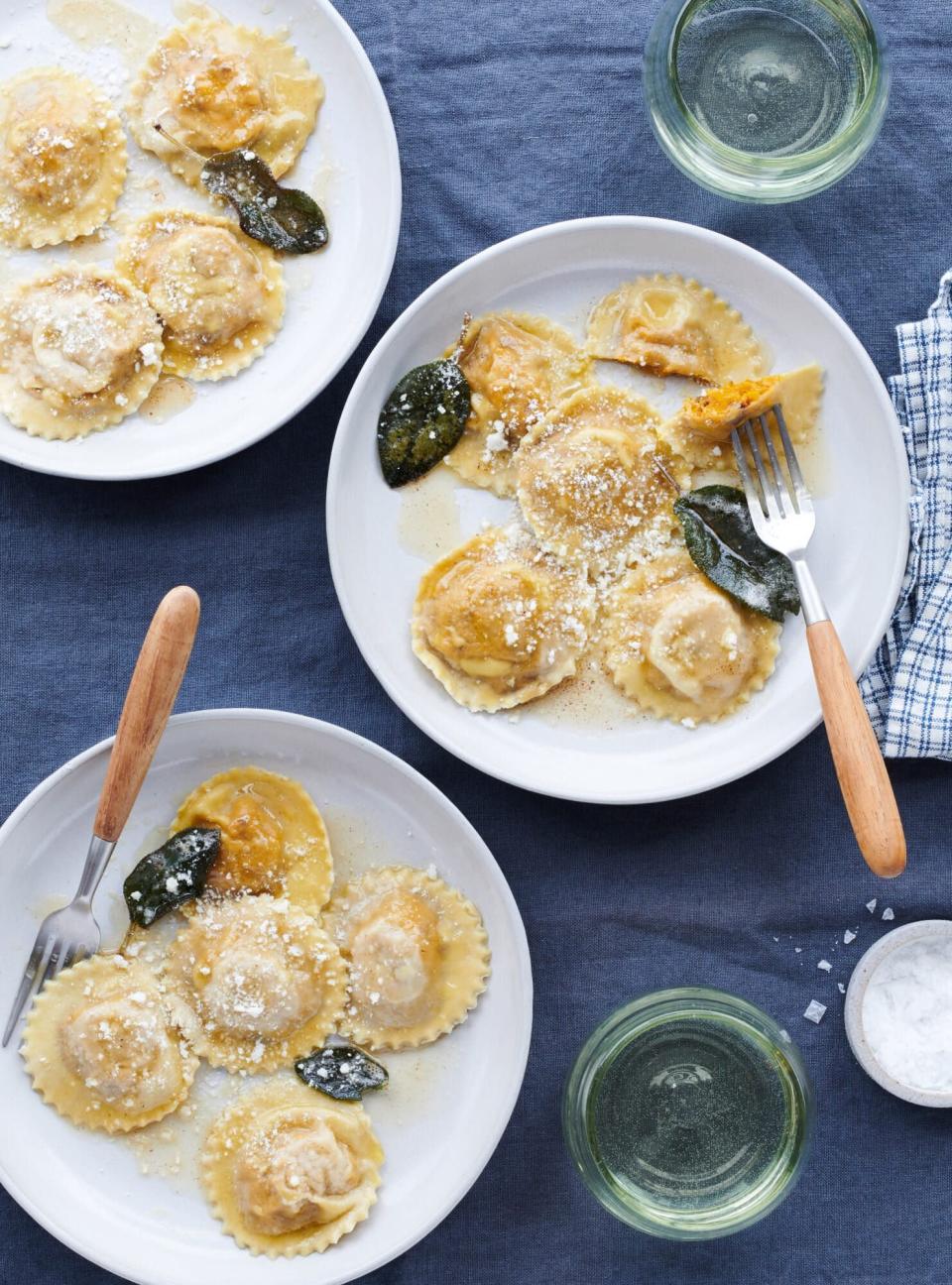Benedetta Jasmine Guetta’s New Cookbook Proves Why Jewish-Italian Food Deserves to Be Better Known

Courtesy of Benedetta Jasmine Guetta
In spite of its monumental influence on Italian foodstuff as we know it now, and irrespective of Jews acquiring lived in Italy for 1000’s of years, creator Benedetta Jasmine Guetta says Jewish-Italian food stuff is a culinary heritage primarily unfamiliar. The population of Jews in Italy these days, she says, is just too tiny. Guetta wrote Cooking alla Giudia ($40, indiebound.com) to train about this storied culinary record, and to help maintain it. “I have visited congregations large and tiny all around Italy, spoken with property cooks young and aged, and I have arrive across a incredibly unfortunate finding,” she says. “A good deal of dishes that were being the moment viewed as regular Jewish fare have already largely been neglected, treasured by it’s possible a few of elderly women that can however cook dinner them, but have no little ones to move the recipes on to, due to the fact the sizing of the local community has faced a continuous fall in the very last many years.”
To characterize food items as Jewish-Italian, Guetta leaned on two standards: “Very first, there are the recipes whose invention is attributed to the Jews of Italy by credible historic resources […]. 2nd, I look at a recipe Jewish if it truly is what Jews eat in their personal residences, both working day in and day out or for the holiday seasons.” The Jewish influence on Italian foods is evident not just in certain dishes and recipes like Roman deep-fried artichokes, sweet-and-bitter sardines from Venice, and caponata from Sicily, but specific components that only built their way to Italy in the very first location thanks to the Jewish individuals. Eggplant, for illustration, was totally unidentified to Italy right until Jews introduced it with them by way of expulsion from Spain. Italians, reportedly, ended up even skeptical at 1st!
Relevant: What Is Charoset? Here is Anything You Want to Know About This Necessary Passover Dish
“Italian Jews were…often expelled from one state and relocated in a different just one,” Guetta writes in her introduction. “But this pressured mobility authorized for the expansion, somewhat than the decline, of their tradition.” In a most fortuitous parallel, Guetta’s have daily life and travels have, in their personal way, carried out a related company to Italian Jewish food—in each preserving its customs, but also sharing them with others. Guetta was born in Milan to an Italian mother and Libyan father, and lived in Germany and Israel ahead of relocating to the United States. She cites each place she’s lived alongside the way as formative to her own model of cooking, Cooking alla Giudia is her to start with English language cookbook.

Courtesy of Benedetta Jasmine Guetta / Ray Kachatorian
In 2009, Guetta and her friend Manuel Kanah started out the blog Labna. In the commencing, it served as a platform to collect recipes the pair would teach in cooking classes. But fascination in their Jewish-Italian foods grew quickly and unexpectedly. “[It] took me by surprise: I did not look at my Jewish recipes primarily exciting—they ended up just what we ate at home—but as my public profile grew, my viewers demanded far more and a lot more of them. Not cookies, not pasta, not the vegetarian food items I liked so much: they wanted the Jewish recipes.” These days, Labna has nearly 800 recipes in its archives. And although her individual Jewish-Italian heritage obviously espoused a enjoy for cooking these recipes, it was the encouragement of Labna’s audience that established Guetta on a mission to write a cookbook.
“My visitors had inquiries that needed to be answered there have been prejudices awaiting to be busted and on leading of all of that, there have been also Jews of all ages out there, in the place and in other places, that came to me wanting for the missing flavors of their childhood, the food their grandma produced for them but they didn’t definitely study to put together.” When conceptualizing what this book would come to be and who it would be penned for, Guetta’s very first assumed was to publish for a primarily Jewish viewers. Nevertheless, she credits her editor, Judy Pray, with suggesting she feel about an viewers with a widened scope—the hope getting that the traditions of Jewish Italian food items have an even greater likelihood of survival with the most inclusive viewers probable.
Still, it was important for her that the book also serves a Jewish audience and its certain desires. “As a keen reader of cookbooks, I have typically wished I would discover recipes structured by meal varieties as well as—why not—also Jewish holidays. That is why I have additional not only the kashrut indexes, but a several paragraphs about the Jewish vacations, indicating which recipes are usually well prepared for every single festivity.”
For the foreseeable future, another cookbook is in her sights: Subsequent time, about Libyan food. For now, living in Santa Monica, Guetta explores Ashkenazi Jewish food items and Jewish deli tradition by way of Café Lovi, a little café she opened only five months in the past. Her present concentration? Cigarette smoking her own pastrami.
